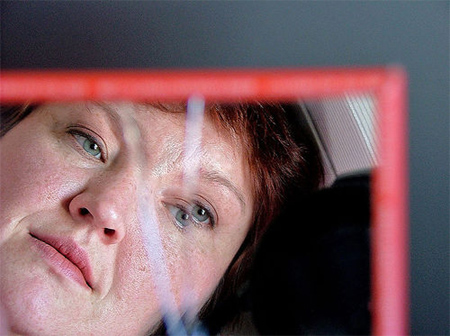This is the fourth in a series of articles that draw on the field of schema therapy, an approach to addressing negative thinking patterns that was devised by Dr. Jeffrey Young. There’s more information about schemas and schema therapy on a new page on The Willpower Engine here.
I don’t know about people in other part of the world, but we in America have a weird relationship with criticism. Some parents criticize their children constantly, while others are afraid to criticize them at all. While I think it goes a little too far to be supportive when a kid is merrily scribbling away on the brand new coffee table with permanent marker, the parents who are worried about criticism are worried for good reason: criticize a kid too much, and they may deal with it by developing a defectiveness schema. If you already know you’re defective, maybe it doesn’t hurt as much when people keep telling you that.
The defectiveness schema
Of course, feelings of defectiveness and inadequacy don’t translate very easily to a healthy life. Someone with a defectiveness schema might be overly defensive and never willing to hear themselves criticized-or they might go to the other extreme and always assume everything’s their own fault. Either way, there’s a basic broken idea here, namely “I’m inferior and defective.” This kind of broken idea is called “labeling” (is it weird that there’s a label for it?).
Another problem with the defectiveness schema is that people in its grip may feel that they are in danger of being “found out”-that people who get too close to them will discover that they are fundamentally flawed and leave, and that therefore no one must ever be allowed to get close. (You might notice a trend of the schemas I’ve covered so far being ones where people are scared to let others get or stay close; that’s because we’re beginning with the set of schemas that deal with disconnection and rejection.)
Overcoming a defectiveness schema
As with any mental schema, the key to overcoming it is overturning, time and time again, the broken ideas it encourages. This means consciously replacing the thought “I don’t deserve this” with “I’m not perfect, but that doesn’t mean that I can’t have this thing that I want” or the thought “If I get close to this person, they’ll find out about all of my shortcomings and leave me” with “I can’t know for sure how someone will act in different situations; this person may or may not end up liking ‘the real me.'”
Repairing broken ideas often takes the form of acceptance, especially acceptance of the possibility of either good or bad things happening. People with defectiveness schemas will benefit from learning to accept even those things they dislike about themselves, and also from accepting that bad things may happen-or that good things can happen too, if those good things are given enough of a chance.
Photo by McBeth



